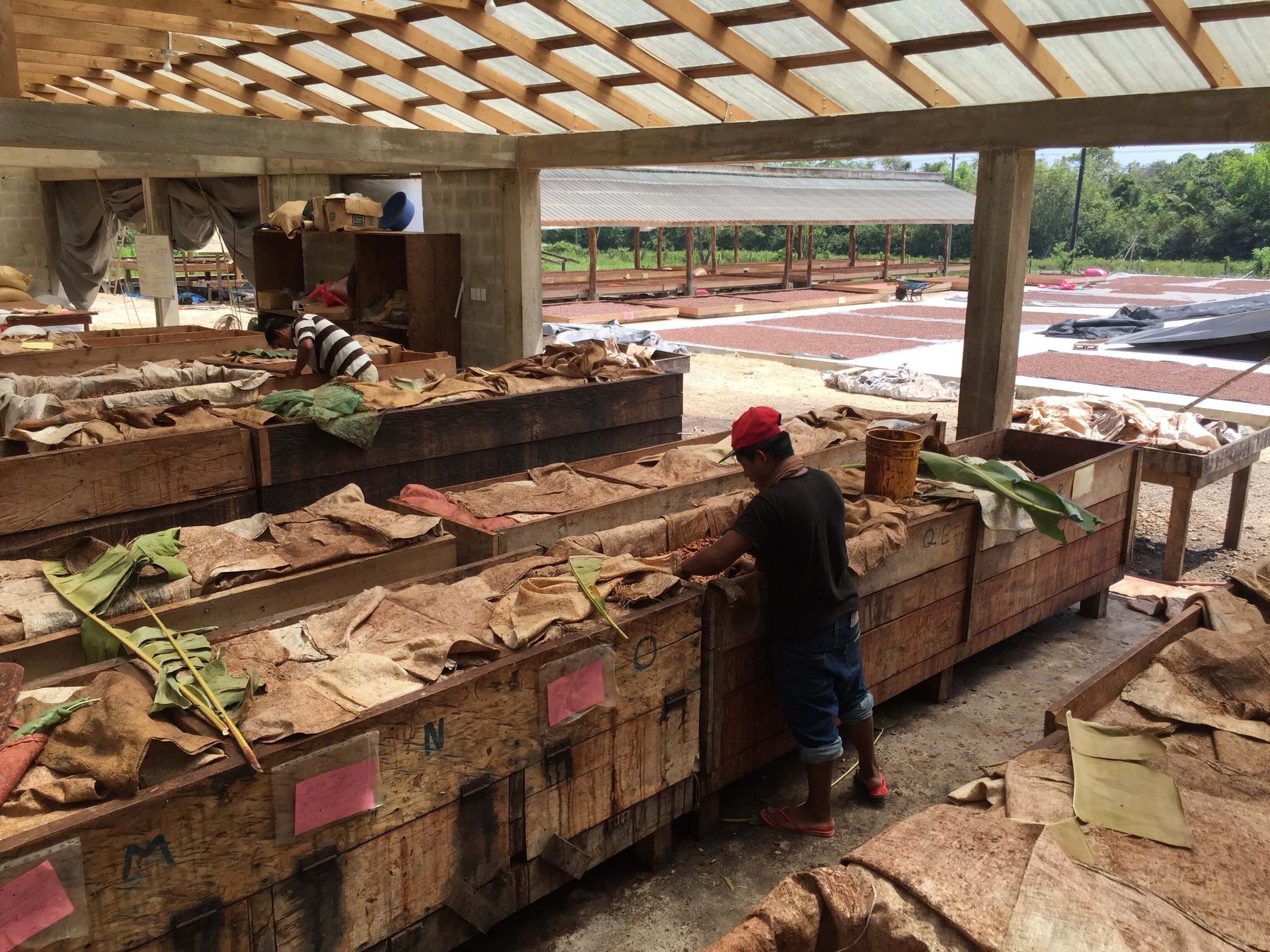3 Ways Uncommon Cacao is Pioneering Transparent Trade in Chocolate
Most of the time, cacao is traded as a commodity crop. But treating cacao as a commodity is a mistake. “That way of thinking about cocoa is not only inaccurate, especially for premium or specialty cocoa, but it's really counterproductive to building a more sustainable and producer-focused industry,” explains Emily Stone, Uncommon Cacao’s CEO and Co-Founder. While “speciality cacao” does not have a standard industry definition, it’s the focus on Uncommon Cacao’s business and transparency is key to how they conduct their business.
The Company
Animas Chocolate's Bean-to Bar Highline Bars, made with only cacao sourced from Uncommon Cacao and organic pure cane sugar photo credit Animas Chocolate
Uncommon Cacao was founded in Belize back in 2010. Today, they operate import and distribution offices in the US and Europe, working across the specialty cacao value chain. “We are looking at the social impact, the environmental impact, the community impact across our value chain in a number of different ways,” Stone says. They supply cacao across the globe. “The majority of our customers are in the US, but we definitely have a growing network of chocolate makers that we work with around the world.” Some examples include Hummingbird Chocolate in Ontario, Fjåk Sjokolade in Norway, and Animas Chocolate in Colorado. Read about Volo Chocolate, who also sources cacao from Uncommon Cacao.
Transparent Pricing
Gerardo Sotz Asig in Guatemala, technical officer and farmer photo courtesy Uncommon Cacao
Central to Uncommon Cacao’s approach is the importance of transparency. “We define transparent trade as verifiable published pricing for every transaction related to a cacao purchase along the supply chain, including information about who produced it, and where,” Stone explains. This means that producers can see how much their product was sold to chocolate makers for.
The business became B Corp certified in 2017, and Stone describes the process as a lot of work, but well worth it. “We found that it’s a really powerful movement of businesses that are really looking to have a bigger role and a more transparent role in creating change.” Plus, Uncommon Cacao is also a part of the Climate Collaborative group. It’s a group of companies connected to the natural foods industry working on advocating for climate policies and regulations and sharing best practices.
It’s not an easy time to be a cacao grower. In recent years, climate change has led to unreliable weather, which can impact harvests. In the Transparency Report published in 2021, Uncommon Cacao asked their partners to share their biggest challenges, and climate variability was rated as the most challenging factor. “It’s been a huge issue,” Stone says. “Across the board we are hearing and seeing a total lack of predictability around the standard rainy seasons and dry seasons.” As climate patterns continue to shift, growers will face further uncertainty during harvest time, and beyond. “If the general ambient humidity is really high, or if the temperature is colder than expected, it can definitely have impacts on flavor in fermentation and drying as well.”
Fostering Global Relationships
Fermentation facility at Maya Mountain Cacao in Belize photo courtesy Uncommon Cacao
Stone explains that Uncommon Cacao seeks to build strong relationships. Since their beginnings in central America, they have expanded to Latin America, the Caribbean, east and west Africa, and south-east Asia. The team is always looking for producers who produce great quality cacao, or who have the potential to. Typically, the process of bringing a new producer on board can be long, and the conversation often starts around a sample. “Our goal is always to work with them over the long term,” Stone says. “We really want to invest upfront in getting to know the flavor profile, the quality, any kind of variability that might just be naturally happening across different harvest periods.”
Building Connections
Herbert Caal leading a training of women producers in Guatemala photo courtesy Uncommon Cacao
Uncommon Cacao also runs ‘Chocolate Weeks’, which offer the opportunity for chocolate makers to travel to meet cacao producers at the source, and visit fermentation operations During these weeks, the chocolate makers and producers can hear from each other and build relationships.
Now, Uncommon Cacao is providing cocoa butter and cocoa powder from Peru and the Dominican Republic. Stone is particularly excited about this since these products have historically been untraceable. It’s a way for people who don’t make bean-to-bar chocolate to buy ethically and transparently sourced products that are certified organic.
Change has been a long time coming for the chocolate industry overall, and more recently, even some larger manufacturers are moving in that direction. As public pressure grows, the systemic challenges of the cocoa supply chain are coming into view. Companies like Uncommon Cacao are making it easier for chocolate lovers to buy and enjoy chocolate ethically.




